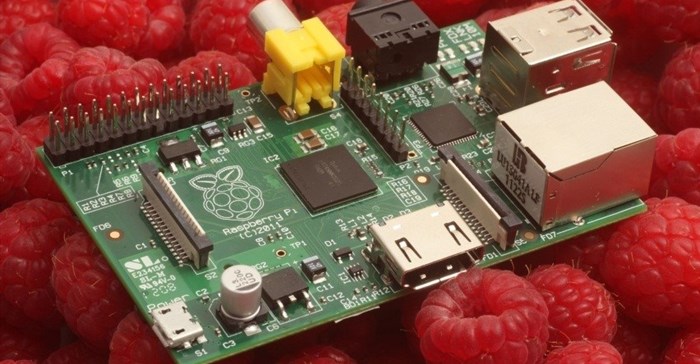Education event, SABC African EduWeek, showcases the latest education technology innovations and offers education professionals the opportunity to source and buy new products for use in the classroom as well as give visitors the chance to enhance their knowledge through a range of conference sessions focused on the future of education. General manager of RS Components South Africa, Brian Andrew, spoke about the history and evolution of the innovative Raspberry Pi which has transformed classrooms and learning around the world.
The Raspberry Pi is a credit-card sized computer board that can be connected to a TV or monitor; add a keyboard and mouse and it can now be used for nearly anything that a normal PC is used for. Some of the most popular applications include spreadsheets, word processing, playing games and viewing high-definition videos but it can also teach children how to do basic computer programming.
The product was initially developed in the UK due to the decline in the number of students entering the computer science field at a university level. The idea was to initiate interest in computer science with students from a young age in order to change the declining supply of students that wanted to enter the computer science field. It started off as a nifty educational tool with the hope of making an incremental difference and was never intended to be mass manufactured. The popularity of this device has far surpassed what was initially envisioned from a mere 2,000 units to five million units sold worldwide.
Applying Raspberry Pi
People across the world have started to use the Raspberry Pi in other innovative ways such as measuring environmental factors like air quality, temperature, humidity, etc. and setting up home security systems, media centres and computer labs. It has successfully been incorporated into various educational initiatives around the African continent to provide low-cost access to computers and the internet. One example is the solar powered computer lab project, which provides disadvantaged children the only opportunity they may have to access a computer and to learn valuable skills like computer programming and working in a team.

Brian Andrew
"Computer programming teaches students how to solve problems, think critically, be creative and to work as a team. Cultivating a love for maths, science and technology can only improve your opportunities for studying and of course future employment. Even young students can have fun learning complex concepts by creating their own computer games using the Raspberry Pi", Andrew commented.
The availability of such a low-cost computer board has two key benefits for education in Africa, the first being physical access to an actual computer and its peripheral applications like the internet and information resources which enable learning and the second is the real world application of that learning by doing computer programming, software development, and coding - the possibilities are endless. This will make a significant contribution to alleviating the challenges faced by education in Africa and ensuring the future success of the next generation of learners.


































